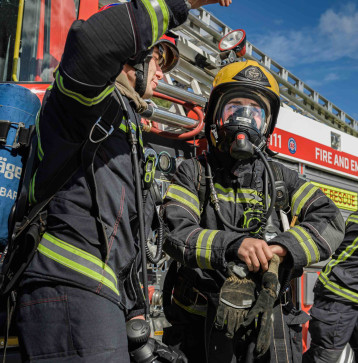
Aviation Rescue Firefighter
Skip to section:
About the role Career progression and training Salary and benefits Entry requirementsProtect lives and mission critical assets as part of our Aviation Rescue & Fire Fighting (ARFF) teams at airfields and bases.
- ServiceAir Force
- SpecialisationOperational Support
- LocationOhakea, Whenuapai, Woodbourne
-
Starting Trade Training$64,177
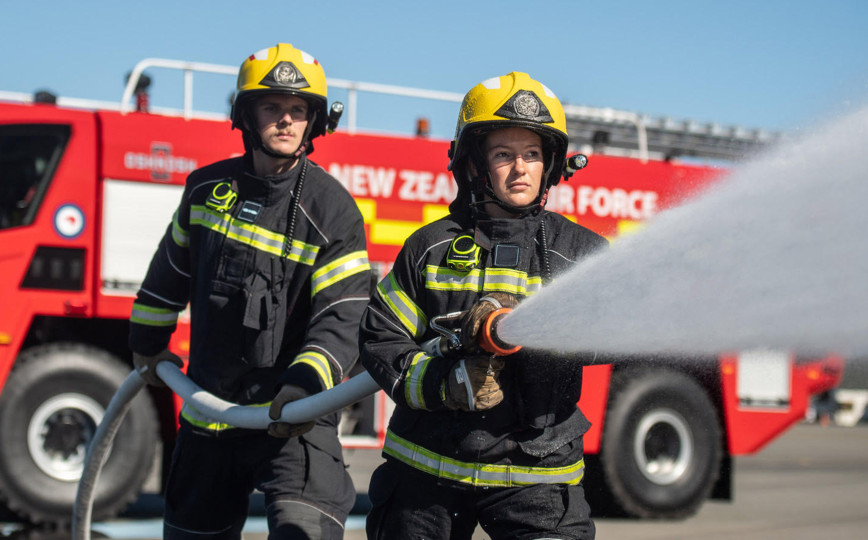
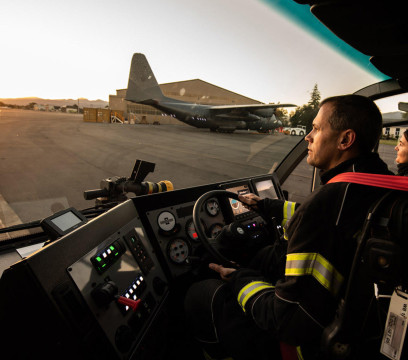
About the role
As an Aviation Rescue Firefighter you’ll be part of a highly versatile Specialist Aviation Rescue & Fire Fighting (ARFF) team located at established and expeditionary airfields to enable both military and civilian aircraft operations. The ARFF units are staffed 24 hours a day, 365 days a year to deliver an emergency response capability for Aviation, Industrial, Urban and Rural firefighting in support of personnel, infrastructure and mission critical assets at airfields, defence and local areas as well as in deployed locations. The ARFF Trade may also support Fire Emergency New Zealand (FENZ) as well as other Emergency Service providers at Local, Regional, National and International emergencies.
Aviation Rescue & Fire Fighting is a challenging job, both physically and mentally. You will be required to maintain a high level of fitness to conduct rescue and firefighting operations. You will carry out regular skills maintenance training, designed to help you retain the knowledge, skills and attributes required to make the right decisions in dangerous situations.
Camaraderie is second to none; integrity, trust and teamwork are values held high in the ARFF trade.
All Fire Flights work a 6 day operational shift set: a day shift, a 24 hour shift, and a night shift followed by 3 rostered days off.
To be part of the team we don’t expect you to be the best, but to give your best. It is as a team that we will be the best.
Job on base
Your duties will range from day-to-day maintenance and servicing of operational ARFF vehicles and equipment, physical training and maintaining your rescue & firefighting competencies to fire safety awareness training for base personnel.
Rostered onto an emergency response crew and ready to respond at a moment’s notice, you’ll be part of a Specialist ARFF team to enable military and civilian aircraft operations. The principle objective of a Specialist ARFF team is to save life in the event of an aircraft accident or incident at, or in the immediate vicinity of the airfield. These teams are provided to create and maintain survivable conditions, to provide egress routes for occupants and to initiate the rescue of those occupants unable to make their escape without direct aid. The team must assume at all times the possibility of, and need for extinguishing fire which may: exist at the time an aircraft is landing, taking off, parked; or occur immediately following an aircraft accident or incident; or occur at any time during rescue operations.
As part of your duties you’ll be required to be part of Emergency Response team in order to save life and minimise damage to NZDF personnel, infrastructure, mission critical assets and the environment in the event of incidents occurring within Defence areas, including: structural fires, motor vehicle accidents (MVA), hazardous materials incidents and medical events. RNZAF ARFF teams also provide Rural Fire Fighting Teams to save life and minimise property damage either in Defence Areas or in neighbouring civilian areas.
Further opportunities exist for you to work alongside NZ Army Emergency Responders both on deployment and through joint NZDF training. As you progress there are opportunities for you to carry out training and courses with other Emergency Service Organisations.
Job on deployment
Whilst on deployment as an Aviation Rescue Firefighter you may provide Firefighting teams in support of deployed NZDF, coalition militaries’ and civilian fire and emergency services. The principle objective is to save life and minimise damage to facilities, equipment, mission critical assets and the environment in the event of incidents occurring within the area of operations.
This can range from participating in overseas military exercises, providing ARFF cover at National Air Shows to supporting international aircraft operations in Antarctica.
Any opportunity we get, we are out there training. Fighting fires, practicing on the aircraft helps builds that team work and comradeship.
Career progression and training
Basic Training
Job Training
Ongoing Training
Specialist Training
Career progression
Upon successful enlistment into the Air Force you’ll be posted to RNZAF Base Woodbourne (near Blenheim). Here you’ll do 12 weeks of basic military training to find out if you’ve got what it takes to be in the Air force, and learn various subjects including:
- Organisation and Administration
- RNZAF Customs and Protocol
- Drill and Parades
- Military Field Skills and Weapon Training
- First Aid, and Search and Rescue Techniques
- Physical Fitness
PRIMARY TRADE TRAINING (FIRE FIGHTER BASIC COURSE)
The second phase of your training is a 13 week NZDF Fire Fighter Basic course at the Joint Services Fire School, Linton Military camp, near Palmerston North, that covers various aspects of rescue and firefighting including:
- Aircraft
- Structural
- Rural
- Hazardous Substance Materials
- NZDF Medical Co-Responder
- Urban Search and Rescue
- Motor Vehicle Accidents
Upon successful completion you’ll be classed as an ARFF Operator and posted to an Air Force base for 18 to 24 months as part of an ARFF team for more consolidation and on the job training.
Other training includes a series of driving courses such as the 4 wheel drive light operators course, gaining a Class 2 full driving licence, and the 4 wheel drive heavy operators course.
You will also spend time working on an Air Force base Fire Flight, receiving further advanced on the job training (OJT) in preparation for your advanced trade training breathing apparatus entry team that can gain entry into an aircraft, make safe its emergency systems such as ejection seats and other hazards as well as search for and initiate the rescue of passengers who are unable to make their escape without direct aid course.
ADVANCED TRADE TRAINING (NZDF FIRE FIGHTER INTERMEDIATE)
After this period you will return to the Joint Services Fire School for advanced trade training. This is conducted over seven weeks and covers advanced aspects of your basic training to include:
- Lead a Fire Crew at an Emergency
- Fight Rural Fires as a Crew Leader
- Bulk Fuel Installation Firefighting
- Liquid, Petroleum and Gas fires
- Deliver Fire Safety Awareness Training
This course is preceded by the emergency pump operator’s course and followed by an emergency response driver’s course and an ARFF Vehicle driving course.
On completion of these courses you’ll become an ARFF Specialist.
FIRE COMMAND AND CONTROL JUNIOR COURSE
Eighteen months after qualifying as an ARFF Specialist you will be able to attend a Fire Command and Control Junior course. This four week course covers:
- NZ Coordinated Incident Management System
- Command & Control an Emergency Incident
- Predict Fire Behaviour
- Building Fire Safety Inspection
- Evaluate a Building Evacuation
FIRE COMMAND AND CONTROL SENIOR COURSE
After 24 months and further experience, you will then be eligible to complete the Fire Command and Control Senior course. This three week course covers trade-specific subjects such as:
- Command & Control of Multi-Agency Incidents
- Trade Related Legislation and Policy within NZ and the Defence Force
Career progression exists from Leading Aircraftsman through to Warrant Officer.
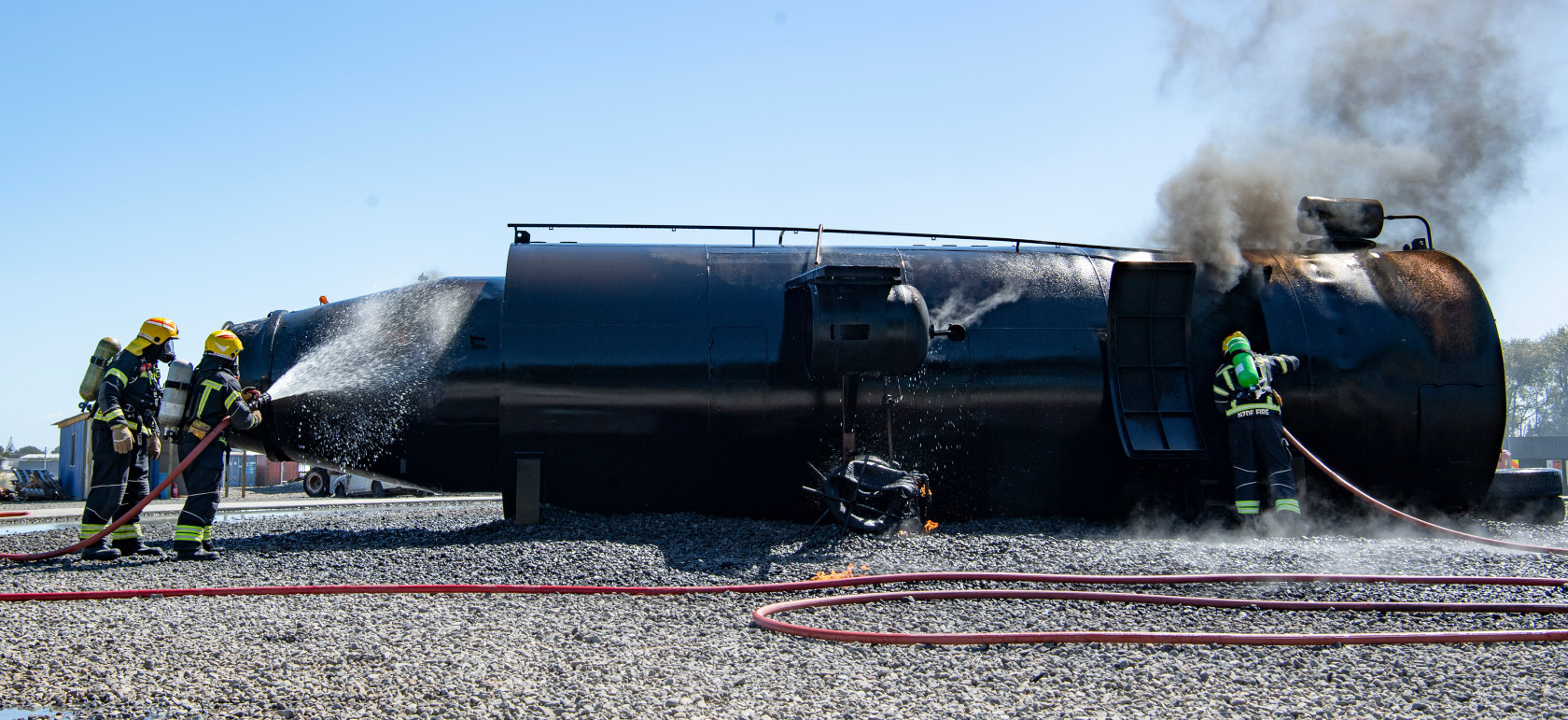
Salary and benefits
Careers in the Air Force are well-rewarded, as well as being diverse and exciting. As you become more experienced and move up through the ranks, gaining additional skills and qualifications, you will see your salary rise accordingly.
$50,597
Under Initial Training
$64,177
Starting Trade Training
$122,331
Future Potential Earnings
Figures updated on July 1st 2023
Military Factor
Earn a competitive salary while training or learning your trade, along with additional allowances for time spent in the field, at sea, overseas, or deployed on operations.
In addition to salary and allowances, other benefits of joining the New Zealand Defence Force include:
Access to your Service marae or tūrangawaewae
Sponsored tertiary study programmes at all levels
Free access to gyms and swimming pools on camp and bases
Opportunities to travel
Free and subsidised medical and dental care
Subsidised food and accommodation on camps and bases
Free and subsidised insurance cover
Help to buy a home and save for retirement
Entry requirements
Basics
Education
Fitness and medical
Citizenship
Period of Service
- You must be at least 17 years of age.
- Meet the citizenship & security requirements to gain CV security clearance for this trade.
- Class 1 Full Drivers licence.
Minimum: 3 years secondary school. Note, qualifications may be used to assess trade suitability.
Find out more about the NCEA levels and certificate requirements
- You must be medically fit for service.
- You must meet specific eyesight requirements.
- Colour perception restrictions may apply.
There are strict citizenship and security requirements to gain the required CV security clearance for this trade.
Your training is some of the most thorough and advanced in the world. Once you have graduated from the Fire Fighter Intermediate Course as an Aviation Rescue Firefighter Specialist, you’ll be contractually obliged to spend another 12 months in the Air Force.

Ready to start your Air Force career?
Other jobs you might like
You can also browse jobs by specialisation to narrow down your search.
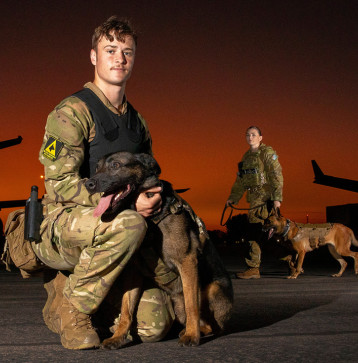
Applications Open
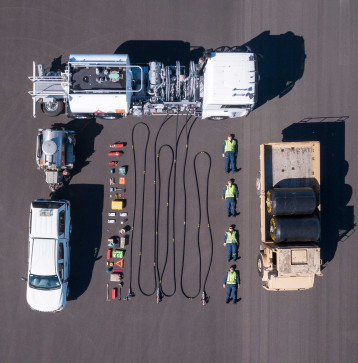
Applications Open

